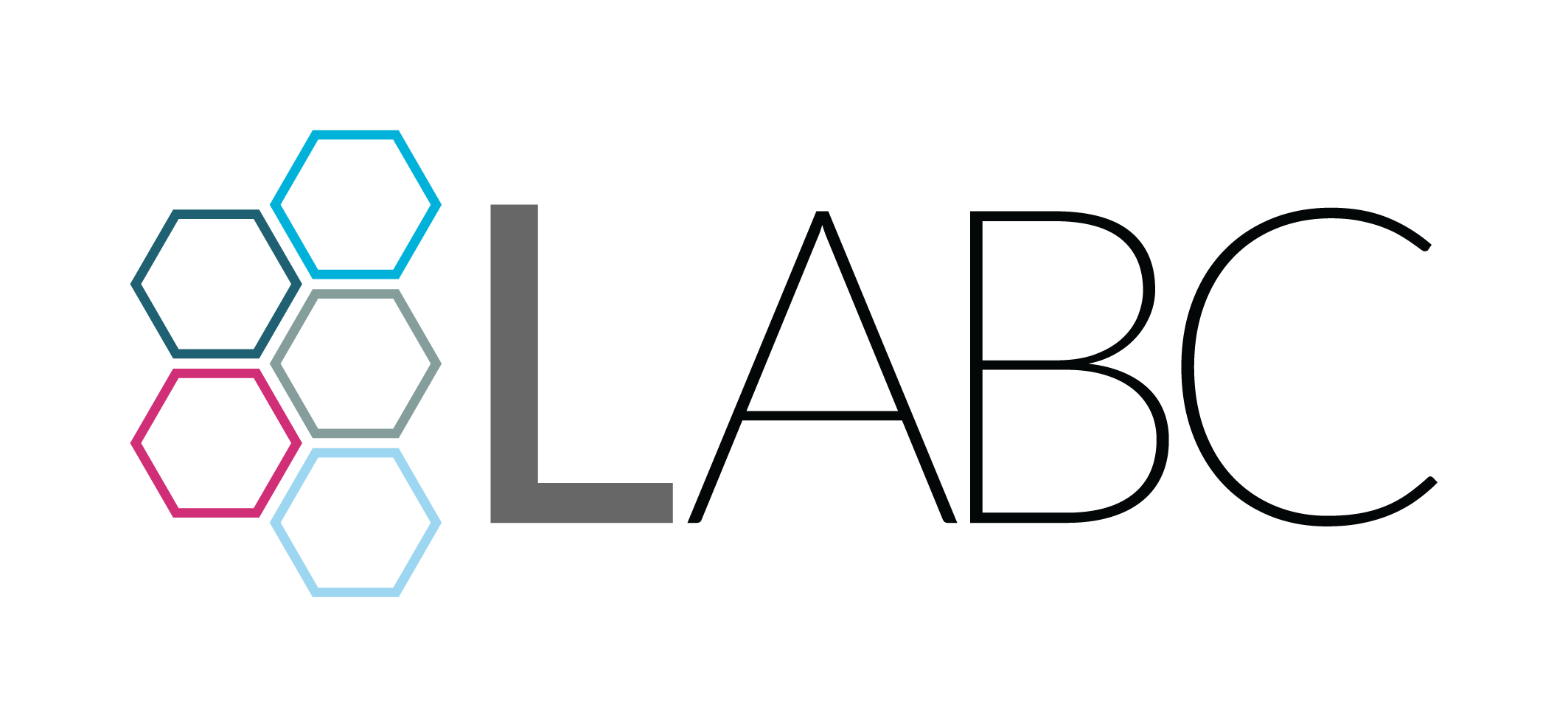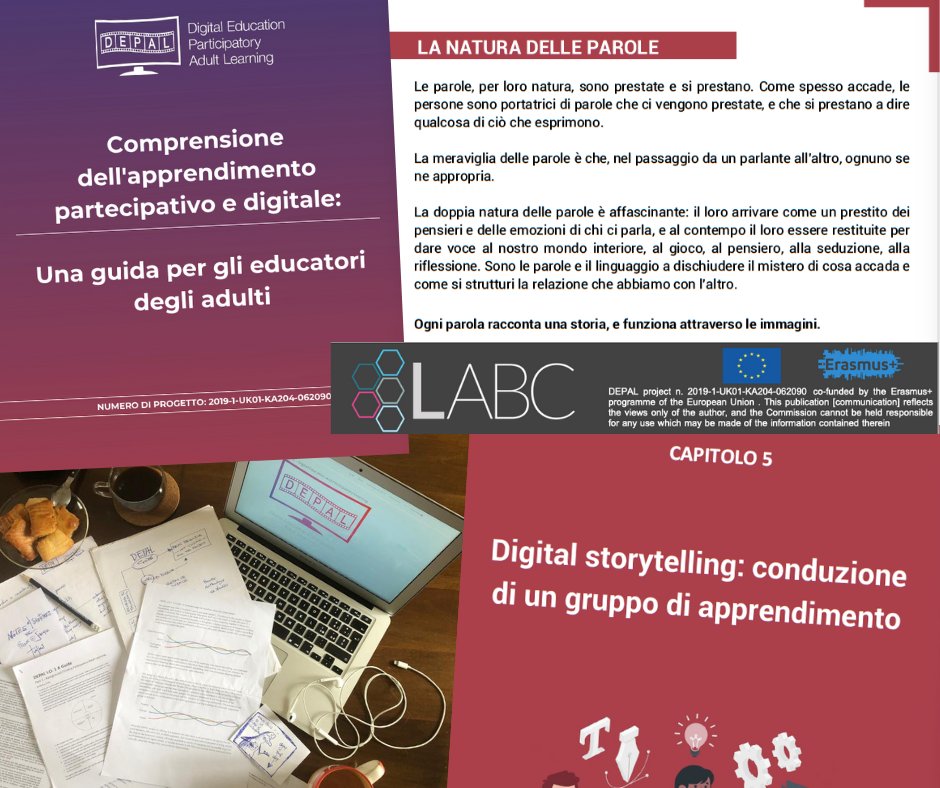“To imagine a language is to imagine a form of life”. This sentence by Ludwig Wittgenstein inspired the chapter of the Guide “Understanding participatory and digital learning”, which we now publish in Italian as a free download.
An Irish proverb says that “a triple cord is not easily broken”. The guiding threads of the guide are Digital Storytelling and Participatory Education.
The intuition behind the DEPAL project and the guide, which is its first concrete product, is that the intertwining of these threads is a powerful resource which, properly integrated and developed in experiential laboratories, gives rise to a third thread that represents the synthesis of a meeting. An encounter between individual stories and group dynamics.
An encounter between three dimensions: being singular, being part of a community and the social dimension of which each is implicitly and often silently bearer.
As Lacan reminds us in the figure of the Borromean knot, none of the three dimensions of imaginary, symbolic and real, can exist without the other two. The moment of the meeting has no hierarchical order, since each of the three dimensions can be central. Each has its own importance in relation to the other two.
The guide aims to introduce the context, theory and logic underlying the use of participatory learning and digital storytelling, offering to those who provide care-work for individuals and groups a theoretical, methodological and practical reference. experiential to learn how to translate this approach into a structured and manageable experiential workshop.
Each chapter of the guide was written by one of the partner organizations of the DEPAL project and, consequently, each chapter offers a different perspective that is the result of the individual experiences of the authors and the scope of competence of the reference organizations. By choice, the differences of approach have been deliberately maintained, aware that the reader will position himself on the contributions that he will feel most enriching.
In the 1st chapter “Background Thinking – Participatory learning for adults” Frank Naughton and Jacqui Gage of Partners Training for Transformation (Ireland) introduce the theoretical and methodological basis of participatory learning, enriching it with suggestions and practical examples.
The 2nd chapter “Creating safe spaces for dialogue” allows in the words of Karen Wynne of the Liverpool World Center (UK) to explore an ancient concept, dialogue, as a place for meeting, exchange and generativity. The theory, methodology and practices of facilitating a dialogue in the group and community dimension are fundamental elements in the experiential construction of places in which the presence of individual singularities can generate a shared logical space in which identities and meanings can meet.
The 3rd chapter opens a parenthesis on the specific intervention perspective of a religious body, which, in the words of Matthew Thompson of Liverpool Community Spirit (UK), narrate the proposal of models of “Confident and holistic adult learning” or through precise related references to the fideistic dimension.
In the 4th chapter “The value of communication: listening and speaking“, Frank Naughton and Jacqui Gage guide us to discover the subtle but substantial distinction between listening, listening through and listening for. Their words and their experience guides us through some components of communication, specifically the act of speaking and listening. As for speaking, each person has “language” preferences with different levels of fluidity not so much in reference to national languages, but to the symbolic dimension of the value of the communicative components of language: the Head (ideas), the Heart (Emotions) and Hands (action).
In the 5th chapter “Digital Storytelling in the conduct of a learning group“, Paolo Brusa and Angela Salvatore introduce the practice of Digital Storytelling and its possible applications in community intervention and in facilitation of workshops in the field of participatory learning for adults. Starting from the nature of language, an exploration of how words are transmitted from the speaker to the receiver is proposed, and above all what happens in the process. Given that, by its nature, language is always populated by images and meanings, a work that includes both images and linguistic structure facilitates the possibility of developing paths of exploration or treatment, during which all the steps represent an opportunity. progressive to reveal something of itself. Awareness and theoretical and methodological references are important to enter the specific process of Digital Storytelling and to understand how the process can facilitate experiences of reciprocal circularity between individuals, groups and communities, and vice versa.
In line with our generative approach and with the practice of being a learning community, the guide is free to use to encourage free and collective sharing.
The complete guide “Understanding participatory and digital learning: a guide for adult educators” is available here for free download in all project languages :
EN: Understanding Participatory and Digital Learning: A Guide for Adult Educators
Italian: Comprensione dell’apprendimento partecipativo e digitale: Una guida per gli educatori per adulti
Spanish: El aprendizaje participativo y digital: una guía para educadores
Greek: Κατανόηση της συμμετοχικής και ψηφιακής μάθησης: Ένας οδηγός για εκπαιδευτές ενηλίκων
The guide is therefore registered under a Creative Commons BY-NC-ND 4.0 license; full and readable license terms are available here: : www.creativecommons.org/licenses/by-nc-nd/4.0
For more information on the project and upcoming publications:

